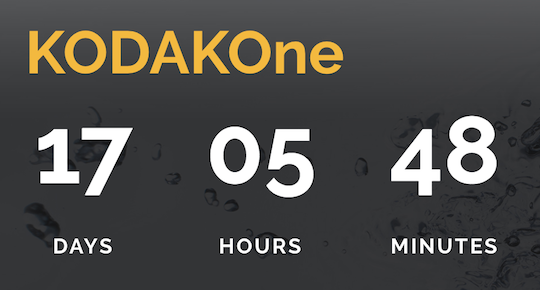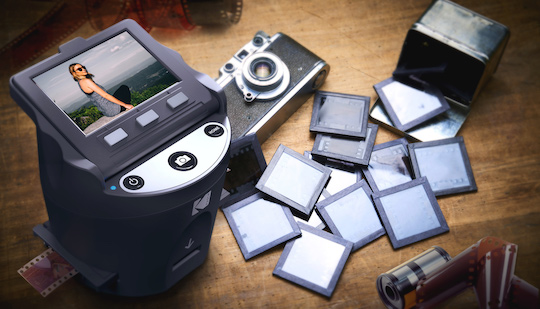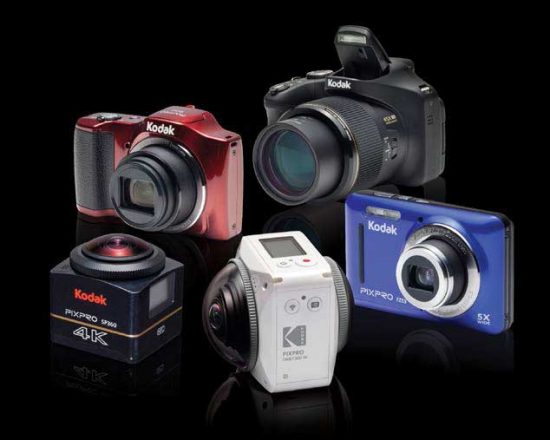
The recent announcement from Kodak about a new blockchain initiative and cryptocurrency raised many questions and some legit concerns. I am not an expert on cryptocurrency, but you can take a look at some quotes gathered online to see how weird the whole story behind the new Kodak cryptocurrency is:
"But what you definitely didn’t hear about (and that we were only made aware of this morning via MarketWatch) was that apparently on January 8th, the day before the big announcements, seven members of Kodak’s board of directors had acquired derivative securities (which are convertible into common stock); this according to SEC filings. So, in other words, the day before this major announcement many members of the board of directors got in a position to take advantage of the growth in Kodak stock when the announcements hit the following day. In fact, of those seven directors, two of them made stock sales on the 9th, and two more of them converted the derivatives they had just acquired and converted them into stock before selling them. So, four of the seven directors of Kodak made money on the announcement..." (Thephoblographer)
We found a deleted page that reveals the paparazzi roots of Kodak Coin: "The evidence strongly suggests that Kodak Coin is the re-branding of an initial coin offering called RYDE coin that never got much attention and was apparently aborted days before Kodak Coin was announced. Until recently, the project had a page on the crowdfunding site Start Engine. The page is no longer there, but Google cached a copy of the site on January 3." (Arstechnica)
Despite being branded under the slogan “in math we trust,” Kodak’s proposition is indeed difficult to fathom from a mathematical perspective. As Ammous notes, given changes in Bitcoin block difficulty, anyone purchasing the two-year contract now would face ultimate gainsin 2020 amounting to around 30% of their upfront payment. This is far from the $9000 or $5600 gains the company promises.
“I suspect this is too blatant a lie for them to have made it deliberately,” he continued. “It’s more likely they spent 15 minutes thinking of how to get into Bitcoin…” (Bitcoinist)
“It’s mind-bogglingly stupid,” said Weaver. “Why would you need a dedicated cryptocurrency to pay for stock photos? I’m pretty sure most photographers want actual cold, hard money.”
“Companies in the real world don’t issue their own currencies for a reason,” said Ammous. “If you want to sell a good, you use real money. Imagine if you had a separate currency for Kodak, Microsoft, Apple and your super market.” (Buzzfeed)
HowToGeek columnist Chris Hoffman called the KashMiner “the dumbest shit I’ve ever seen at CES.” As Berkeley International Computer Science Institute researcher Nicholas Weaver noted, “The cost estimates are insanely wrong: Assumes no increase in mining rate, no power cost” (though the language does specify Kodak’s partner Spotlite will cover most operational costs including electricity). (Gizmodo)
Kodak has so far declined to comment on the calculations behind the claims. However, the dodgy math casts doubt on not only the bitcoin-mining strategy but also its own KodakCoin currency, launching later in January. The two launches suggest that Kodak is treating cryptocurrency as a short-term revenue boost to shore up its struggling finances rather than a sustainable, trustworthy business. And that's a big problem for both investors and KashMiner customers, as they may be expecting returns that might never materialize. (Engadget)
Additional Kodak coverage from 2018 CES:
CES 2018 report: Kodak Previews the Super 8 Camera

Kodak also announced a new Scanza digital film scanner for film and slides.

JK Imaging announced several new Kodak branded cameras including a new Astro Zoom bridge model with a 102x zoom.








